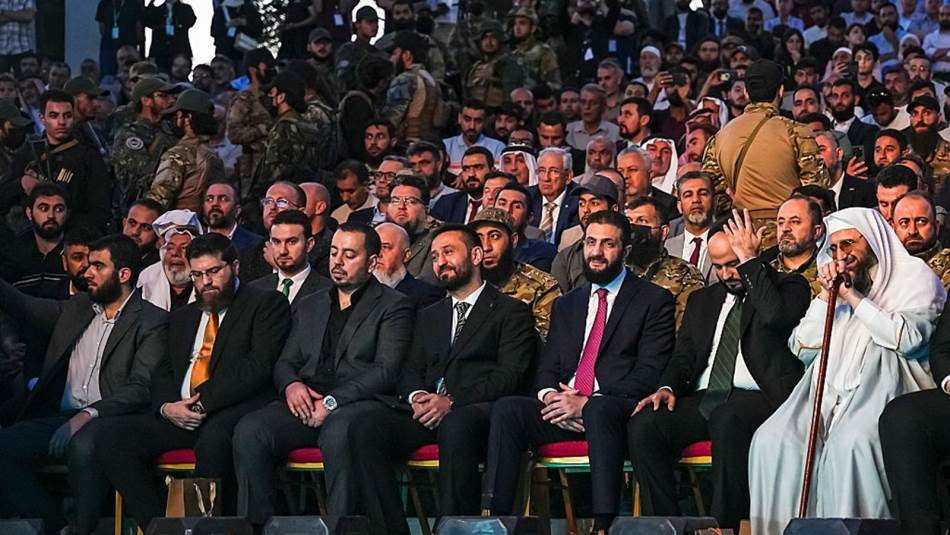Syria is no longer the open battleground of regional conflict it once was. It has retreated from its losing alliance with Iran and distanced itself from the proxy war waged on its territory via Israeli–Iranian skirmishes. Though its skies remain a conduit for missiles and warplanes, the prevailing challenge now confronting the Syrian government is of a different order: the recalibration of its regional posture towards neutrality and non-intervention. In this strategic interlude, the nation has turned inward—towards institutional consolidation and the reconstruction of the state.
Against the backdrop of warplanes cutting across the sky—some returning, others not—a quieter yet pivotal development is unfolding: the formation of a new People’s Assembly. More than a procedural obligation, this represents a symbolic step towards rebuilding the Syrian state and reimagining its political future. Internationally, it signals a newfound political maturity; domestically, it may mark the first substantial effort to restore institutional legitimacy.
President Ahmad al-Sharaa’s studied silence on the Israel–Iran conflict reflects his vision of Syria as a “cold front”—a state emerging from prolonged war, striving for stability and refusing to be dragged into another regional conflagration that would further exhaust its human and material resources. For many Syrians, the real battle is no longer the one raging overhead, but the one brewing within, should the state fail to rebuild itself on principles of equal citizenship, justice, and merit.
This context lends particular significance to the recent formation of a High Electoral Commission, mandated to oversee the selection of sub-electoral bodies across the provinces. These local bodies will, in turn, elect the 100 members of the new parliament. While seemingly technical, this mechanism carries immense symbolic and political import. It is not merely an electoral process, but a potential redefinition of the relationship between state and society—an opportunity to break with a past where representation was manipulated and legitimacy reduced to performance.
Notably, this new electoral model does not grant every Syrian the direct right to elect parliamentary representatives. Instead, a presidential decree delegates this function to electoral bodies appointed by the High Commission—each ten times the number of seats assigned to a province. While this indirect system may be met with scepticism, it offers a possible framework for cautious, staged institution-building—so long as the selection of electors is grounded in integrity, independence, and a nuanced understanding of local contexts.
Under this arrangement, the onus of responsibility shifts. The credibility of the outcome will hinge not only on procedural transparency but on the substance and quality of those chosen to vote. Formal credentials and traditional allegiances are no longer sufficient. Electors must demonstrate a deep grasp of their communities’ social, economic, and cultural dynamics. They must reflect the spirit of liberation from decades of repression and corruption, and embody the diversity and complexity of Syrian society.
Parliamentary representation, in this light, is no longer a matter of numbers. It becomes the cornerstone of a state governed by law and justice. The electoral body is not a ceremonial tool—it is the backbone of a sovereign political process. These elections are an expression of Syria’s intention to reclaim its political agency from warlords, foreign sponsors, and entrenched patronage networks. They declare that Syria’s interior is no longer a vacuum to be filled by external actors, but a political space in which qualified Syrians can shape the future of their state.
Unsurprisingly, debate has emerged over President Sharaa’s constitutional authority to appoint one-third of the new parliament. Critics warn this “blocking third” could dominate or paralyse legislative functions. Others, more generous in interpretation, view it as a “guaranteeing third”—a safeguard ensuring the inclusion of capable voices and marginalised communities unable to secure representation through conventional means, especially in the context of widespread displacement, poverty, and social fragmentation.
For this appointed third to serve a constructive purpose, it must not reinforce partisan agendas or entrench elite dominance. Its role should be to correct structural imbalances—not perpetuate them. In this pivotal moment, legitimacy is not merely a matter of legal procedure, but of fairness and merit.
The stakes are considerable. Any failure in composing the new legislative body will signal a deeper flaw at the foundation of Syria’s political reconstitution. What is needed now is not a polished display of power or a superficial performance of reform, but a genuine revival of public life—built by capable hands and anchored in a new social contract.
This article was translated and edited by The Syrian Observer. The Syrian Observer has not verified the content of this story. Responsibility for the information and views set out in this article lies entirely with the author.


